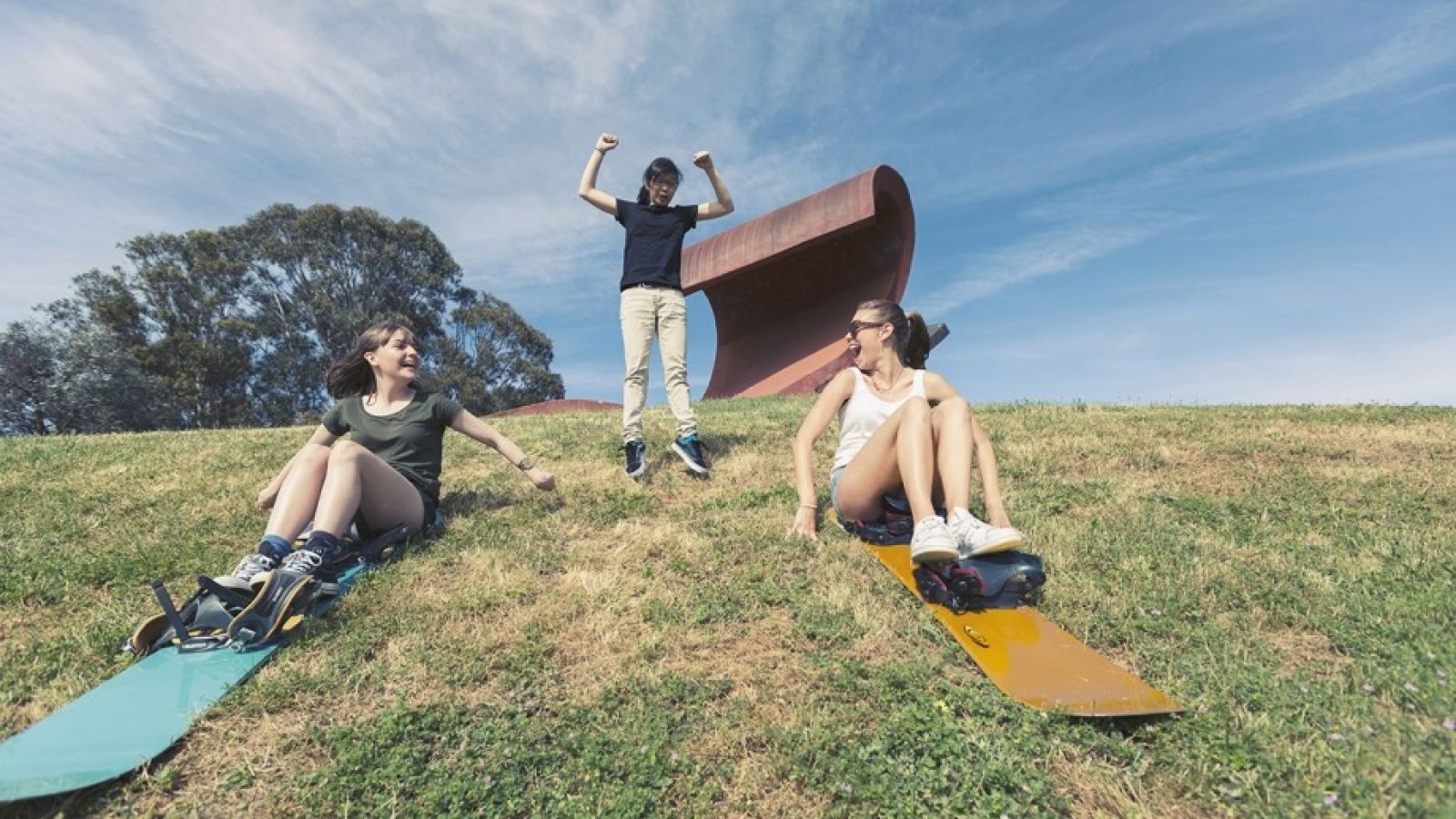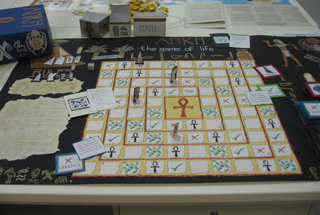The power of play in the School of Archaeology & Anthropology

From humble origins as mere advertising tools, the use of educational games continues to expand, finding new ways to illustrate and convey the processes behind a range of complex social and environmental issues. Organizations such as the World Bank, which has recently teamed with Games for Change to increase the impact of its development programs, and the Nobel Prize, which has developed interactive web-delivered educational games to convey the work of the Nobel Laureates; all are discovering the “power of play” - the realization that games can teach in ways that are memorable, interactive, and fun.
Now an ANU teaching and learning initiative joins the trend. Students enrolled in BIAN2130, Ancient Medicine, took on the challenge of designing, building and testing an educational board game on the theme of History and Archaeology of Medicine. Working in small groups, these apprentice games developers fitted an extraordinary amount of work into a semester, achieving results on par with what professional teams with established budgets for research and development would accomplish on a similar schedule.
While the content of the educational material conveyed through the game was paramount, a poorly-designed or built game would have noticeably detracted from its overall ease-of-use, ‘replay value,’ and enjoyment. Course Convenor, Dr Marc Oxenham, (School of Archaeology & Anthropology) included the board game project for the first time this year and students were mentored through crucial design and prototype testing phases by the School’s resident games ‘expert,’ PhD student Damien Huffer. Damien’s experience in computer-based educational games, both as manager of an on-going project and as author of an academic paper on the potential of educational games in archaeological heritage conservation efforts, Conserving the Past Through Play: Educational Gaming and Anti-Looting Outreach in Cambodia ensured that teams were well-guided in the process of game development.
All those involved in the project are proud of the teams’ hard work and their newly-acquired ability to view games as applicable to real-world educational and outreach challenges, above and beyond the latest commercial products which normally characterize public awareness of, and engagement with, the gaming industry. For those with no previous gaming experience at all, this project has hopefully demonstrated that gaming can be much more than a hobby. These outcomes are strongly evidenced by the successful production of the following games:
- Ancient Interns
- Ankh – The Game of Life
- Cursus Medicorum
- Dyscrasia
- Favour of the Gods
- Humourous Death
- Mediaeval Mania (the game of Medical Madness)
- Mummies and Maladies: The Curse of Imhotep
- Sanctuary
- Mundus Medicina
- Yin Yang: A Journey Through Chinese Medicine



